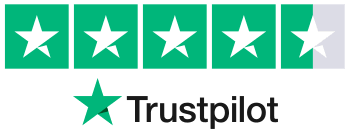
In the digital transformation era, online education has become a cornerstone of learning, offering unprecedented flexibility and access to knowledge. However, the true potential of online education lies in its ability to be accessible to all, breaking down barriers and creating a truly inclusive learning environment.
Table of Contents
Understanding Accessibility in Online Education
Accessibility in online education refers to the inclusive practice of designing and delivering digital learning experiences so that all students, regardless of their physical, cognitive, or situational disabilities, can engage fully and effectively. For students with diverse needs, ensuring accessibility is paramount. This includes creating online courses that are navigable, understandable, and interactable for everyone, ensuring equal learning opportunities. Whether students aim to get high-quality college papers from essay writing services like EssayPay or navigate course materials, prioritizing accessibility benefits the entire educational community.
Challenges in Achieving Accessibility
1. Technological Barriers
One of the main obstacles to accessibility in online education is the lack of accessible technology. Many online learning platforms and digital resources are not designed with accessibility, making them challenging for students with disabilities. This includes issues like non-compatible screen readers, lack of closed video captioning, and poor website navigation.
2. Economic Constraints for Institutions and Students
Implementing accessible technologies and training staff can be prohibitive for educational institutions, especially those with limited budgets. On the student side, the cost of assistive technologies, such as specialized software or hardware, can be a significant barrier, particularly for those from low-income backgrounds.
3. Lack of Awareness and Training among Educators
Many educators lack awareness or understanding of the importance of accessibility in online learning. This, coupled with a shortage of training in creating and managing accessible content, means that many online courses are inadvertently exclusive. Educators need resources and training to develop and deliver content that meets the diverse needs of their students.
4. Diversity in Student Needs and Learning Styles
Students come with various learning styles and needs, which can be challenging in a single online learning environment. Different disabilities require different accommodations; what works for one student may not work for another. This diversity necessitates a flexible approach to course design and delivery, which can be complex and time-consuming to implement effectively.
Benefits of Accessible Online Education
> Enhancing Learning Opportunities for All Students
Accessible online education is pivotal in enhancing all students’ learning opportunities. Removing barriers to access and participation ensures that every student, regardless of their abilities or disabilities, has an equal chance to learn and succeed. This inclusive approach benefits those with specific needs and improves the learning experience for all students by introducing various teaching methods and materials.
> Improving Engagement and Retention Rates
Accessibility in online education can significantly improve student engagement and retention rates. When courses are designed to be accessible, they naturally become more engaging, interactive, and easier to navigate. This leads to a more satisfying learning experience, which keeps students motivated and less likely to drop out. Additionally, when students feel that their learning needs are being met, they are more likely to stay committed to their educational journey.
> Promoting Equality and Diversity in Education
An accessible online learning environment is a powerful tool for promoting equality and diversity in education. It acknowledges and respects the differences in learners’ abilities and backgrounds, offering various approaches to learning that cater to a diverse student population. This inclusive attitude fosters a sense of belonging among all students and helps build a more understanding and diverse educational community.
Strategies for Creating Accessible Online Learning Environments
O Utilizing Universal Design for Learning (UDL) Principles
One effective strategy for creating accessible online learning environments is to utilize Universal Design for Learning (UDL) principles. UDL is an educational framework based on designing course materials and content to be accessible to all learners from the outset. It involves providing multiple means of representation, expression, and engagement to cater to the diverse needs of all students.
O Implementing Assistive Technologies and Tools
Using assistive technologies and tools is critical in making online education more accessible. This includes software like screen readers, speech-to-text tools, closed captioning for videos, and text enlargement features. These technologies help break down barriers for students with visual, auditory, or physical disabilities, enabling them to access content in ways that suit their needs.
O Developing Inclusive Course Design and Content
Developing inclusive course design and content is essential to inaccessible online education. This means creating flexible courses that accommodate a range of learning styles and needs. Inclusive design includes using clear, simple language, providing materials in multiple formats, and ensuring all interactions, activities, and assessments are accessible to all students.
O Continuous Assessment and Feedback Mechanisms
Finally, incorporating continuous assessment and feedback mechanisms is crucial in maintaining and improving accessibility in online learning. Regularly evaluating the effectiveness of accessibility measures and seeking feedback from students helps identify any areas that need improvement. This ongoing process ensures that the learning environment remains as inclusive and accessible as possible for all students.
The Role of Government and Policy Makers
> Legislation Promoting Online Education Accessibility
The role of government and policymakers is crucial in promoting online education accessibility. Through legislation, governments can set standards and regulations that mandate the inclusivity of digital learning platforms. Such laws ensure that online educational materials and tools are designed to be accessible to all students, including those with disabilities. For instance, the Americans with Disabilities Act (ADA) in the United States requires educational institutions to provide reasonable accommodations to students with disabilities. Similarly, other countries have enacted laws and guidelines to ensure that online education is inclusive and accessible.
> Funding and Resources for Implementing Accessibility
In addition to legislation, the role of government extends to providing adequate funding and resources to implement accessibility in online education. Implementing accessible online learning environments can be resource-intensive, involving adapting technology, training educators, and creating accessible content. Governments can support these initiatives by allocating funds to enhance accessibility in educational institutions. This could include grants for purchasing assistive technology, funding for research into innovative, accessible teaching methods, and resources for training educators and staff. Such financial support is essential for schools, especially those with limited budgets, to comply with accessibility standards and ensure all students have equal access to online learning opportunities.
Conclusion
The journey toward fully accessible online education is ongoing and requires the collective effort of educators, institutions, governments, and students. As we embrace these changes and challenges, we move closer to a world where learning knows no barriers and every student has the opportunity to reach his or her full potential. The future of accessible online education is not just bright; it’s essential.










